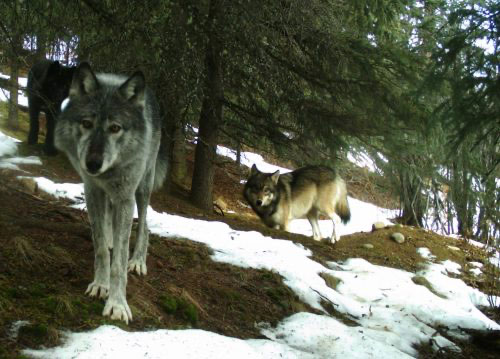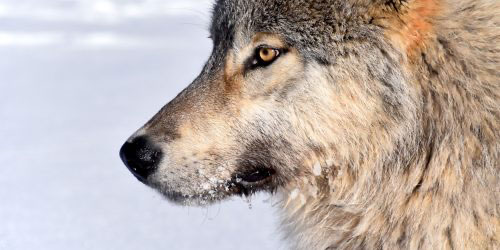
Wolf-virus study shows the virtue of spaceBy NED ROZELL
May 26, 2021
In a study of more than 2,000 gray wolves from near Mexico to northern Canada, researchers found that the farther wolves were from people, the fewer viruses and parasites they encountered. In the study, scientists used blood samples taken over several decades from wolves on the Alaska Peninsula, Denali National Park and Preserve and Yukon-Charley Rivers National Park and Preserve. They also used samples from wolves living as far east as the Upper Peninsula of Michigan and as far south as Arizona.
The scientists checked the blood-serum samples for antibodies to certain canine viruses and a few parasites. Alaska and northern Canada wolves had fewer of those antibodies when compared to other populations studied in North America. This suggests the far-north animals have not been exposed to those viruses and parasites. Mathew Sorum, a Yukon-Charley biologist, is a co-author on the study, along with Bridget Borg of Denali National Park and Preserve and Kimberlee Beckmen of the Alaska Department of Fish and Game. The 22 scientists who participated in the study wanted to see if viruses and parasites in wolves followed a noted trend: the farther a creature lives from the equator, the fewer pathogens it encounters. Sorum, who studies wolves in Yukon-Charley — a park larger than Delaware near where the Yukon River enters Alaska — said that an advantage to living at a high latitude comes from the fact that there are fewer bodies here that can host harmful microorganisms. “Near the equator there is the widest variety of species, with the greatest abundance,” Sorum said. “Fewer animals can live in extreme environments closer to the poles.”
Relative separation from other creatures seems to have served Alaska’s wolves well. Wolves on the Alaska Peninsula, for example, had no detected antibodies for a parasite found in whitetail deer, while 66 percent of wolves tested from northeastern Minnesota had antibodies for that parasite in their blood. Wolves that live far from cities and towns also interact less with dogs, which can carry viruses like parvo and distemper that can spread to wolves. Though dog teams travel through wolf country in Alaska all winter, that exposure is pretty limited, Sorum said. The 10,000 or so wolves that roam Alaska in unpopulated swaths of the mainland have the advantage of sheer distance from many viruses and parasites. That might change with a warming climate that might encourage other creatures to roam northward, but for now many valleys and mountains are as they were centuries ago. “We’re starting at the beginning in many ways compared to conservation areas and parks in the Lower 48,” Sorum said. Sorum and others study wolves in Alaska because wolves are an “apex” predator, relying on caribou and moose and voles and grouse, along with other features of intact habitats. “How well they’re doing tells us how well the ecosystem is doing,” Sorum said. “Right now, things are great.”
SitNews Editor's Note:
|
||||||

